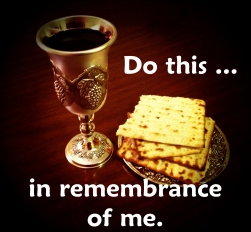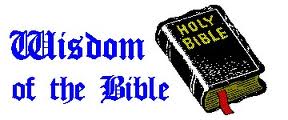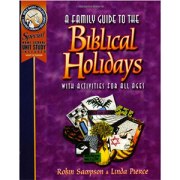The Marriage Supper of the Lamb will soon arrive!
As we have seen in the first and second articles in this series, the Feast of Passover is coming into view as being the Marriage Supper of the Lamb!
New Series:
The Mystery of Passover
As we draw closer to the time of the return of the Bridegroom, we are beginning to see more clearly some of the prophetic pictures for the Bride’s preparation. Perhaps one of the most significant of these pictures is the Mystery of Passover. In this short series, we will present three aspects of The Mystery of Passover that are highly relevant to the Bride, as they are a vital part of her preparation. This series includes the following segments:
Among the Bride-Candidates, there are some who have been ‘making ready’ for this Marriage Feast — for they have been celebrating the Feasts of the Bridegroom!
Each year, more and more of the Bride Candidates are beginning to make themselves ‘ready’ by attending the Bridegroom’s Supper, the Passover meal eaten on the 14th Biblical night of the first month, and by attending the other Feasts given by the Bridegroom throughout the year.
The Bride-Candidates are learning that Yahuweh’s Feasts are as ‘Rehearsals’ for the real thing. As in the natural world, those who attend the rehearsals, will have a part in the Wedding.
The Bride-Candidates are learning from the warnings given by the Bridegroom, regarding those invited to the Marriage Supper:
Then said the king to the servants, Bind him hand and foot, and take him away, and cast him into outer darkness; there shall be weeping and gnashing of teeth. 14 For many are called, but few are chosen. (Matthew 22:13-14)
And sent his servant at supper time to say to them that were bidden, Come; for all things are now ready. 18 And they all with one consent began to make excuse. The first said unto him, I have bought a piece of ground, and I must needs go and see it: I pray thee have me excused. (Luke 14:17-18)
Notice in the above Matthew passage, ‘many’ have been invited to the Marriage Supper, but as we saw earlier in this series, for various reasons ‘few’ have chosen to attend. Let’s look to see the reason for this.
Few Attend the Bridegroom’s Feasts
Many have been invited to the Marriage Supper, but even today, few choose to attend the ‘rehearsals’ for the Marriage Supper of the Lamb, on the very day prescribed by the Bridegroom Himself!
Why is this? The Scripture passage above tells us ‘with one consent’ (‘as one’) they began to ‘make excuse’ (‘refuse, avoid’). Let’s look at the source of today’s ‘one consent,’ in order to see why many have departed from The Faith of the Scriptures, and refuse to attend the Bridegroom’s feasts.
Today, there are some Believers who have been taught that these Marriage Supper ‘rehearsals’ are only for our Jewish brethren; others have been taught that a supposed ‘Age of Grace’ has swallowed up a supposed ‘Age of Law,’ and for them these rehearsals have somehow disappeared.
And because they have not read the Scriptures for themselves, to see whether these things are true, they have become deceived. When spiritually blind people follow spiritually blind leaders, they both fall into the ditch.
Others have not been deceived in this manner, but are sitting at the feet of the Bridegroom, learning of Him. They are beginning to attend the Feasts of Yahuweh, and learning how to keep the Bridegroom’s Sabbath Days (‘shabbats’).
But even of these, many have planned to attend the great Feast on a different day, a day based on their own tradition, as perhaps some did in the above Luke 14:17-18 passage.
And though they are careful to keep the Feasts, a great many continue to look to Leaders who, like those in Luke 14:18, with one consent offer their people many varied ‘excuses’ for not attending the Feasts on the day specified by the Bridegroom. From this evidence, it appears that even the timing of the Passover meal is among the mysteries of the Kingdom!
Lest that day catch us unawares, we will look at the Scriptures that tell us exactly when the Feast of Passover occurs, and when the Feast of Unleaven occurs. We will look first at Yahushua’s Words, and His example, and then use these as a kind of ‘template’ through which to gain further understanding.
Only in this way may we identify what is Tradition, and what is Truth. Let’s see how we might find the Truth.
Truth Requires Commitment
We must recall, that if Passover issues are among the mysteries of the Kingdom, their Truths may be initially hidden from our view:
Bind up the testimony, seal the law(“Torah”) among my disciples. (Isaiah 8:16)
And his disciples asked him, saying, What might this parable be? 10 And he said, Unto you it is given to know the mysteries of the kingdom of God: but to others in parables; that seeing they might not see, and hearing they might not understand. (Luke 8:9-10)
In the Isaiah 8:16 passage above, we see that the testimony of the Torah is closed up, and ‘sealed’ as to its prophetic meaning, to all except Messiah’s Disciples.
In the second passage above, in Luke 8:9-10, we see that when dealing with any of the ‘mysteries’ of the Kingdom, we must first confirm our priorities: Are we among Yahushua’s Disciples — or are we among the others?
So in order to ‘know’ these mysteries — that is, in order to understand Yahushua’s Words — our first priority must be to insure that we are among His Disciples, His ‘talmidim.’ But who are His Disciples?
John 8:31 tells us that His Disciples are those who continue (‘remain’ in, and are “DO-ers” of) His Word; who follow Him, and who walk in His footsteps.
For only by walking in Yahushua’s footsteps, can we have understanding of His Words, and have Grace to live by His example.
Again, in order that we might understand His Words regarding the timing of Passover, we will look next at the importance of following Yahushua’s example, and of walking in His footsteps.
Walking in Yahushua’s Footsteps
Many today have looked to Yahushua for their redemption by His Blood, and for their eternal salvation. As a result, these have been ‘Born-Again’ (born of the Spirit), and Yahushua dwells within them; and because Yahushua has been ‘birthed’ within them, they are now Bride-Candidates.
But not all of the Bride-Candidates follow Messiah. Some have not yet learned how to follow Him; others have been taught that once they are saved, it is not important to follow Him.
Still others have believed for a time, but for various reasons have fallen away, as Yahushua taught His Disciples in the parable of the Sower (Luke 8:13). In this writing, however, we will address only those who truly desire to follow Messiah. Let’s see what this entails.
Those who truly ‘follow’ Messiah, follow in His footsteps. That is, they endeavour to follow His words, and His examples, in all things pertaining to daily life. They are not perfect, for they are mere mortal men; but they follow Messiah’s example. Let us therefore see how Messiah is to be our example:
Righteousness shall go before him; and shall set us in the way of his steps. (Psalms 85:13)
In the above passage, we see it is because of Messiah’s Righteousness, that we can be set or established in the Way of His footsteps.
I lead in the way of righteousness, in the midst of the paths of judgment: (Proverbs 8:20)
In the above passage, we see that those who desire to walk in the way of Righteousness, and in the paths of His ‘mishpatim’ (His judgments as seen in Heb 6:2, Psalms 119:160), are those who follow His example — by walking in the Way of Righteousness, just as as He did.
Then spake Jesus again unto them, saying, I am the light of the world: he that followeth me shall not walk in darkness, but shall have the light of life. (John 8:12)
In the above passage, we see that those who follow Him will not walk in darkness, in ignorance of spiritual matters.
We might even say from this passage, that those who truly follow Messiah Yahushua, will not be in ignorance of spiritual matters — but those still in darkness do not yet truly follow Messiah. Let us see this contrast illustrated in Scripture.
Following Messiah
There is a great contrast in Scripture, between those who do not follow Messiah, and those who do. In the passages below, notice the actions of those whom Yahushua does not know, compared to the actions of those He knows:
Many will say to me in that day, Lord, Lord, have we not prophesied in thy name? and in thy name have cast out devils? and in thy name done many wonderful works? 23 And then will I profess unto them, I never knew you: depart from me, ye that work iniquity<458>. (Matthew 7:22-23)
Afterward came also the other virgins, saying, Lord, Lord, open to us. 11 But he answered and said, Verily I say unto you, I know you not. (Matthew 25:11-12)
Then shall ye begin to say, We have eaten and drunk in thy presence, and thou hast taught in our streets. 27 But he shall say, I tell you, I know you not whence ye are; depart from me, all ye workers of iniquity. (Luke 13:26-27)
My sheep hear my voice, and I know them, and they follow me: (John 10:27)
In the first three passages above, we see that ‘many’ will be doing those things that identify them as true Believers. They even call Yahushua ‘Lord,’ and so they are considered ‘virgins’ in a spiritual sense — yet Yahushua does not know them.
He even tells them the reason He does not know them, for they are workers of iniquity [Greek ‘anomia’, Strong’s number “transgressing the Law; being without Law”] — so that their actions are contrary to His actions — revealing that they truly do not follow Him!
Yahushua’s sheep, on the other hand, cultivate their ears to hear, and to hearken (‘obey’) in order to listen for His direction. The result is Yahushua ‘knows’ them, for they follow Him — that is, they walk in His footsteps, literally to ‘join or accompany in the same path.’
To Follow Yahushua is to Obey Him
Let us now see one important aspect of following Yahushua. Here we will see the importance of His obedience as our example:
Though he were a Son, yet learned he obedience by the things which he suffered; 9 And being (“having been”) made perfect, he became the author of eternal salvation unto all them that obey him; (Hebrews 5:8-9)
In the above passage, we see that Yahushua learned obedience to His Father by the things which He suffered; so that Yahushua became the author or initiator of salvation unto all those who obey Him, by following His example of obedience. Peter tells us more:
For even hereunto were ye called: because Christ also suffered for us, leaving us an example, that ye should follow his steps: (1Peter 2:21)
In the above passage, we see that Yahushua suffered for us, leaving us an example; that is, He suffered for our benefit, as seen in the Hebrews 5:8-9 passage, so that we, too, might know that ‘suffering’ is the cost of learning obedience, and of doing Father’s will.
We then see in the above passage, that the purpose of His example for us is so that we might follow in His footsteps — that we might follow in His example of obedience, and of doing Father’s will!
It is not the purpose of this writing to coax anyone to become His Disciple, but simply to warn those who already think of themselves as ‘Disciples.’ Many claim to follow Him, but in reality they do not yet follow Him, because of the cost of changing their priorities:
If any man come to me, and hate not his father, and mother, and wife, and children, and brethren, and sisters, yea, and his own life also, he cannot be my disciple. 27 And whosoever doth not bear his cross, and come after me, cannot be my disciple. For which of you, intending to build a tower, sitteth not down first, and counteth the cost, whether he have sufficient to finish it? …33 So likewise, whosoever he be of you that forsaketh not all that he hath, he cannot be my disciple. (Luke 14:26-33)
When we come to a place where we are willing to give up all that ‘we’ have, and all that ‘we’ have built-up as to our own understanding — and are committed to walk in the simplicity of Yahushua’s Words, and His example for us — only then are we ready to see, and to understand His Words.
Our goal is to know and understand Yahushua’s words, and His example, regarding the timing of Passover, so that we might follow in His footsteps. And so we must digress momentarily, to see what further requirements must be met, in order for us to ‘see’ and ‘know’ these secrets of the Kingdom, regarding the timing of the Passover Feast.
Next: Passover: Which Day-Truth or Tradition? Part 2
—
Related Articles:
- Communion: A Man-Made Substitute for the Biblical Passover – Also called the ‘Eucharist’ and ‘Lord’s Supper,’ this man-made substitute is a counterfeit of the Biblical Passover meal eaten by Messiah and His disciples the same night in which He was betrayed. This counterfeit has been passed down to us over the centuries, and today continues to be practiced unknowingly by most evangelical Believers.
- Eating Things Sacrificed Unto Idols: A Warning to the Bride – The Full-length article.
- The New Covenant Passover: A Mystery – Full List of Passover Articles, with Descriptions and Links.
- If You Love Me, Keep ‘My’ Commandments – Do we show our love for Messiah, in the way He has told us — or have we lost sight of His identity?
- What Are the Ten Commandments? – Also called The Ten Words, these Scripture passages are shown in both Hebrew and English, enabling us to see for ourselves what these Commandments actually say. When we as New Covenant Believers understand whose words they are, we can better know how to respond to them.
- Obeying Torah is Not About Salvation – Obedience to the Torah [Father’s House Rules for His family] is not about our redemption by Yahushua’s blood. Instead, it is Messiah’s New Testament instruction to all Born-again Believers in how to abide in Him, how to love Him, and how to walk as He walked.
- Seven Biblical Guidelines for Studying the Bible: Using Scripture to Interpret the Scriptures – What is the source of our current understanding of the Bible? The pure Truths of Scripture are of highest importance — how we understand the Scriptures will affect our eternal condition! To avoid being deceived by man-made doctrines, we must not rely on Preachers, Teachers, Bible notes or commentaries. Instead we must study and understand the Bible for ourselves — not looking through the lenses of tradition or man-made Bible study methods — but relying only on what the Bible actually says about how to study and understand the Scriptures! Here are 7 Biblical Guidelines that show us the way!
- Contending for The Faith – We are exhorted to contend, to fight to remain in The Faith that was originally given. Scripture shows what The Faith is, and shows why and how we must contend for The Faith. Overview of how the adversary attacks the foundation of The Faith, with examples of contending for The Faith.
- The Wise and Foolish Virgins – Yahushua tells us why many today are not prepared.
- The Wise and Foolish: According to Yahushua – Messiah tells us in clear and simple terms for our instruction, who the wise and foolish are today!
- The Wise and Foolish Virgins: The Separation of the Wise – The Scriptures reveal a 2-step process of separation from the multitudes, for those who would grow in Wisdom.
- Let No Man Steal Your Crown – Reveals there are men today trying to take away, and steal your Bridal veil, and your crown; things that allow your crown to be stolen; the Doctrine of Balaam, and how it will steal your crown.
- Who is the Chaste Virgin? – The Bridegroom is coming for His Bride — one who is chaste, and without corruption. The Scriptures warn us of the many forms of corruption, and how to remove them, in order to remain chaste, and ready for the Bridegroom.
- The Wedding of the King’s Son: A Parable – A parable revealing the astonishing – and magnificent – nature of the New Covenant.









I agree with your comments but believe the wedding supper/feast or moed will be Succot which lasts a week like the ancient Jewish weddings.
Shoshana, You may be right. It is interesting to note that all the Feasts (‘moedim’) have features related to the Wedding. These consist of the Betrothal, the Wedding or Consecration (kiddushin), the seven days under the chupah, the consummation at the end of the seven days, and a seven-day wedding feast.
According to “A Jewish Wedding” by Greg Killian, the Betrothal and Wedding went as follows:
We may be still in the ‘Betrothal’ stage, in which the Bridegroom continues to hope that all of His people will be among the Bride-Candidates who show their approval of the Bridegroom, by drinking the wine of Passover.
From that moment onward, the Bridegroom expects the Bride to abide by the Marriage Contract Document or Covenant. This Document is called in Scripture the ‘Everlasting’ Covenant or ‘New’ Covenant, and its fine-print is all of Scripture, including the Torah! The Bride is learning to please her Bridegroom, by keeping His Marriage Contract, which includes the attending of His Feasts.